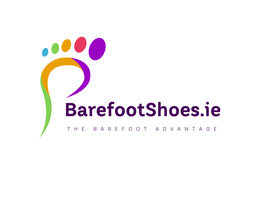|
The experiment, designed by lead researcher Dr. Ross Alloway, undertaken with Dr. Tracy Alloway, associate professor, both from the Department of Psychology at UNF, and Dr. Peter Magyari, associate professor in the Department of Clinical and Applied Movement Sciences at UNF, is the first to show that running barefoot leads to better cognitive performance than running with shoes.
Working memory, our ability to recall and process information, is used throughout our lifespan. By improving it, we may be able to realize gains in key areas, from school to work to retirement. "Working memory is increasingly recognized as a crucial cognitive skill, and these findings are great news for people looking for a fun way to boost their working memory," said Tracy Alloway. The UNF researchers enlisted 72 participants between the ages of 18 and 44, who ran both barefoot and wore shoes at a comfortable, self-selected pace for approximately 16 minutes. Working memory was measured before and after running. The results of this research, just published in Perceptual and Motor Skills, found a significant increase -- approximately16 percent -- in working memory performance in the barefoot-running condition. There was no significant increase in working memory when running with shoes. Additionally, the speed and heart rate of the participants was measured but neither was found to have any impact on working memory performance. "The little things often have the greatest impact. This research shows us that we can realize our cognitive potential and enjoy ourselves at the same time," said Ross Alloway. "If we take off our shoes and go for a run, we can finish smarter than when we started." When running barefoot, one often has to avoid stepping on potentially hurtful objects by using precise foot placement. As a result, study participants were required to step on flat objects to simulate running barefoot in an outdoors context. Though participants stepped on the flat objects with shoes and barefoot, only the barefoot condition saw improvements in working memory. According to Ross Alloway, it's possible that the barefoot condition required a more intensive use of working memory because of the extra tactile and proprioceptive demands associated with barefoot running, which may account for the working memory gains. Story Source: Materials provided by University of North Florida. Note: Content may be edited for style and length. Journal Reference:
0 Comments
Your comment will be posted after it is approved.
Leave a Reply. |
|
We support Protect the Children of Kenya. A registered charity that helps assist children who have been withdrawn from forced labour. STOP CHILD LABOUR NOW - Learn more
Store Owner Kevin Griffiths , 8, Bothar an Chnoic, Knock Road, Claremorris, Mayo F12 E7D0
Ireland Reg No 642942 VAT No: IE 3232046U Dun & Bradstreet reg no 986063333
[email protected]
Ireland Reg No 642942 VAT No: IE 3232046U Dun & Bradstreet reg no 986063333
[email protected]


 RSS Feed
RSS Feed

